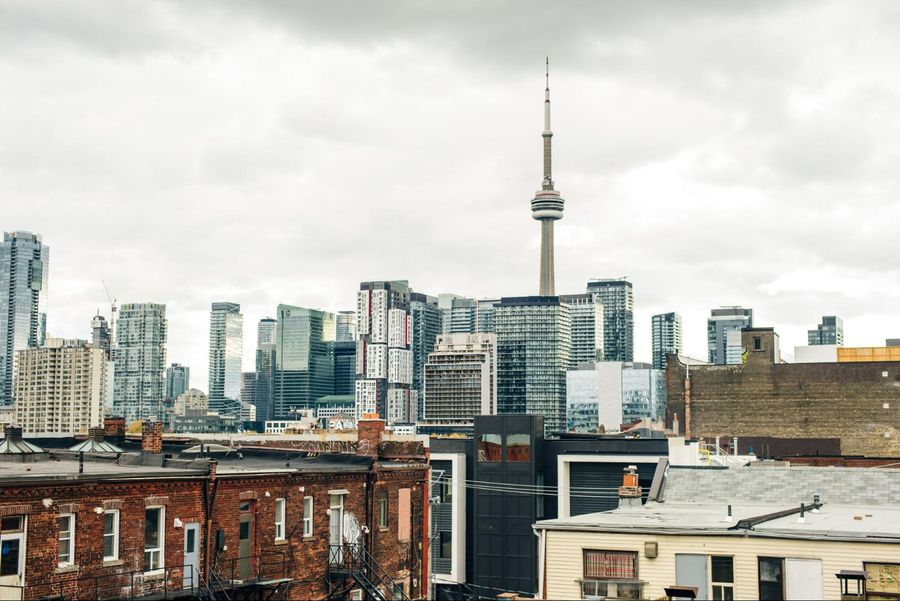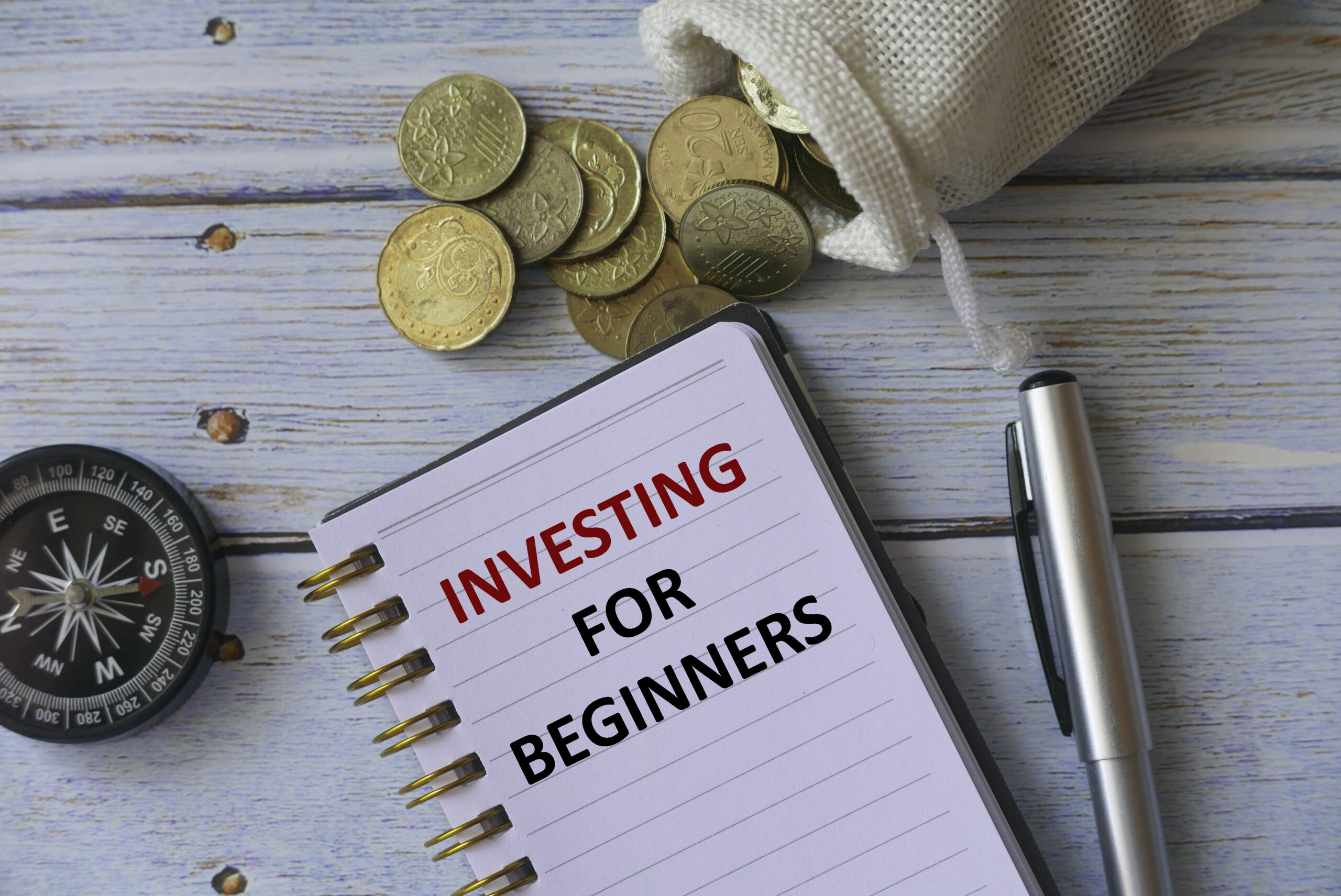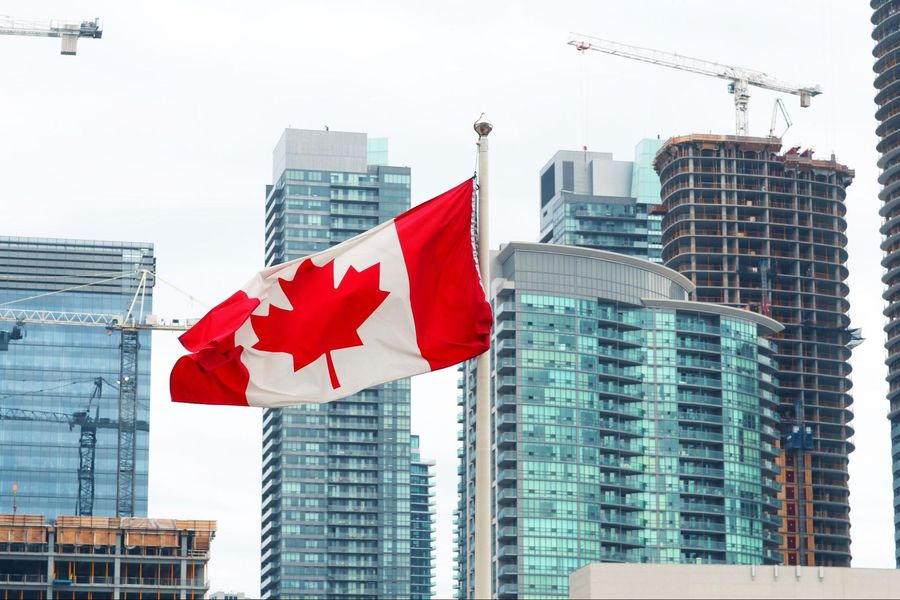Last Updated on October 24, 2023 by Corben Grant
If you are looking to make the big move to Toronto or have lived here before but want to finally put down permanent roots, you may be starting to look at buying property. Buying property anywhere in the province will be a similar process, but choosing to buy in such a large and complex city can present some of its own challenges that you should be aware of.
For one, the city is diverse in so many ways. Every corner of the city has its own personality, history, and community, and every home in that area has its own unique features. Simply ‘buying property in Toronto’ will mean very different things depending on what you buy, where you buy it, and your budget.
That is, if you can even find a home in the city. For years now, stock in Toronto’s real estate market has been low and prices are shooting up, meaning you will need to put in some extra work to buy here. Unfortunately, low stock is an issue across the country, but Toronto has particularly high demand.
But, perhaps you aren’t sold yet on the city and are simply wondering if this lifestyle is right for you before you commit to such a large purchase. This article is for everyone – from those who are ready to buy today to those who are only dreaming. We will cover everything you need to know about buying a property in Toronto, choosing the right area, finding the right home, working with real estate professionals, and what kinds of financing you will need.
Is Toronto right for you?
Before you decide to move into the city, it may be worth asking yourself if the choice is right for you. There are many upsides to living in such a bustling city, and many inconveniences as well. It is better to know now if you may not enjoy the city life before you have invested so much money.
If you want to be nearby for a lot of activities, the city is . Toronto has no shortage of shopping, dining, nightlife, events, performances and more to keep you entertained. It is also a good choice for business and career focussed individuals, with a ton of business and industry going on in the city.
There are also many in the city’s numerous schools and parks. In addition, Toronto is also one of the most popular destinations for new Canadian immigrants. The city is highly international with just under half of its residents being immigrants themselves. That means that there are thriving communities from all cultures within the city.
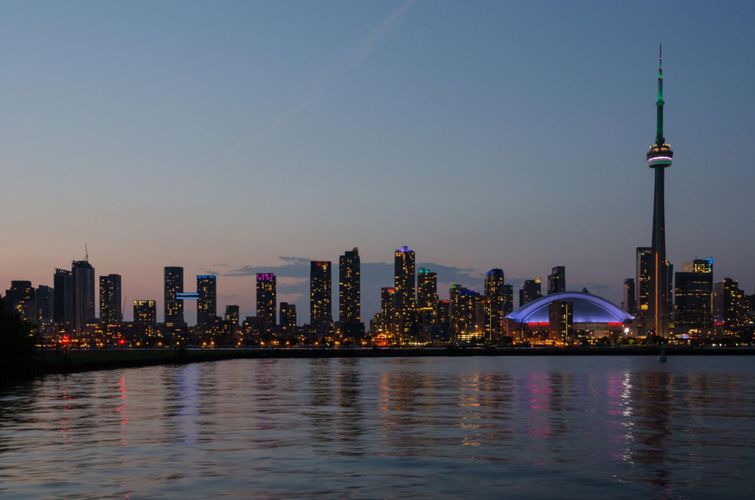
Now for those who may not do well in the city. For one, the city is not the best place for nature lovers. While there are some pleasant parks, trails, and green spaces in the city of Toronto, compared to the kind of outdoors many Canadians are used to, it simply doesn’t stack up.
Another type of person who may not do well in the city is anyone who needs a lot of space. The city is densely developed and you will always be close to many other people. If you need more space to grow, especially for families, consider looking outside the city instead.
Finally, the city will not be a fit for anyone looking to get a deal on housing. Simply put, Toronto has some of the highest property prices in the country, so if your wallet is light, you may be out of luck.
What budget do I need?
Just how much money you need to buy property in Toronto will of course depend on what you choose to buy. Currently, detached homes in Toronto average at over $1.8 million, with semi-detached, townhouses and condos averaging at $1,431,988, $981,759, and $745,951 respectively. Across the GTA as a whole, average prices are moderately lower than in the city proper.
However, since you will likely be taking out a mortgage, how much will you actually need to get started? Well for one, by law any home above $1 million is required to have a 20% minimum down payment, meaning you will need at least $200,000 to get into the average home in Toronto before you even factor in closing costs (which we will cover more in depth later on). Of course, there are still some options for homes under $1 million in the city, for which the minimum down payment can be lower.
In terms of debt serviceability, a recent post on lowestrates.ca estimates that you would need an income of about $155,000 to afford a $1 million home in Toronto on top of your down payment savings. Suffice to say, you will need a nice amount of money to get started in the Toronto real estate market. Therefore, your first step should be to begin saving for a .
Once you have your down payment saved, now is the time to get preapproved for a mortgage so you know exactly how much you can afford and because this looks better to sellers. A mortgage broker can help you find the best mortgage rates and make the most of your money.
What type of real estate should I buy?
Before you start the home buying process, you need to know what you are actually looking for. When it comes to options for property to buy, Toronto has it all – from condos and single family homes to multiplexes and townhomes. When choosing what sort of home you want to purchase you should consider your situation and what best suits your needs and your budget.
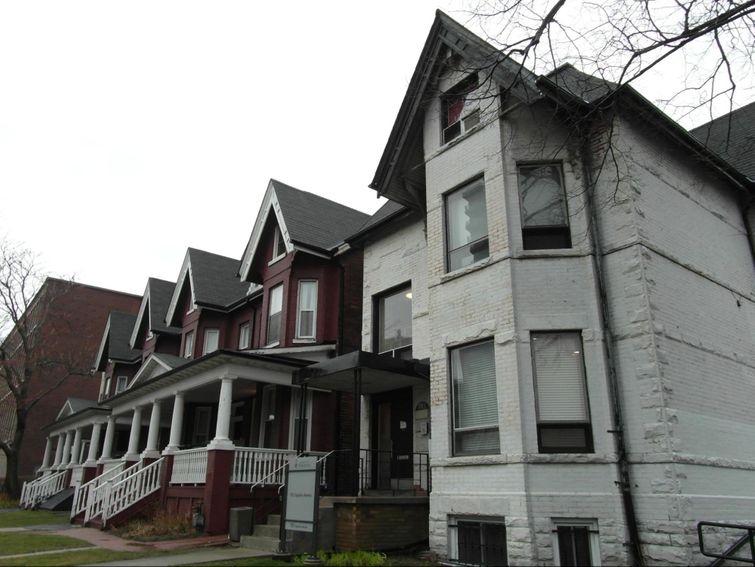
Condos are great for people without families or people who can’t afford a $1 million house, but also for those who want to live right in the heart of the city. Townhouses are better for families who need more space than a condo can offer. Detached homes provide you with the most space and options and will be the most comfortable for those with large families and those with a higher budget.
For investors, any real estate in the city can be a good investment depending on how you choose to use it. Make sure to do your research about the area and the property you are buying so you can be sure your investment is viable.
What about new construction?
There are some options for new builds in Toronto.
For one, building your own home can offer you complete control over your dream home. However, there is not much vacant land in the city and you will likely have to buy a whole other house simply to tear it down and put up a new one. Unsurprisingly, this is a very costly option, but it is doable.
There are also many newly built and pre-construction condo developments happening in the city. Buying into a pre-construction condo allows you to be the first owner of a brand new condo. However, you may be waiting for multiple years before you can move in or begin renting.
Finding the right property to buy
Buying the right property will be key to your happy life in the city. Before beginning your home search there are a few things you need to know. These include factors like what sort of property you are looking to buy, what areas you are most interested in, and what your budget is. Finding a home in the city can be difficult, so if you don’t go into the process knowing what you want, you can waste your time and money in the process.
The many neighbourhoods of Toronto
The city of Toronto is home to around 140 different neighbourhoods, each with their own unique character. You should try and narrow your search down to a few neighbourhoods you would be happy in.
Here are some things to consider when looking for the right neighbourhood:
- Does it have transportation options? Will you be able to easily drive, bike, or get a ride to places you need to go?
- Is it near necessities such as groceries, health services, recreation, etc.?
- Does it have nearby areas for shopping or dining? Or for families, are there nearby schools and parks?
- What is the local community like? Do they host any special events or activities?
- For a real estate investment, what is the price outlook of the neighbourhood? How many people in the area are renters, and what kind?
With so many different neighbourhoods in the city, there are sure to be at least a few that will tick many of your boxes. Finally, be sure to actually go and visit these areas before you choose to buy so you can get a feel for what living there will be like.
Toronto vs. the rest of the GTA
Beyond the city of Toronto, there is a sprawl of nearby municipalities referred to as the Greater Toronto Area (GTA). The GTA comprises 25 different municipalities, both big and small,l and urban and rural. Just as each neighbourhood in Toronto has its own features, each local market of the GTA does as well.
The GTA exists as a result of urban sprawl stretching so far as to virtually combine many cities into a single metropolis. As a result, living in the GTA means you can easily access the numerous other cities in the region. Therefore, if you thought you were set on living in Toronto, don’t discount the GTA as a viable option for you to settle in.
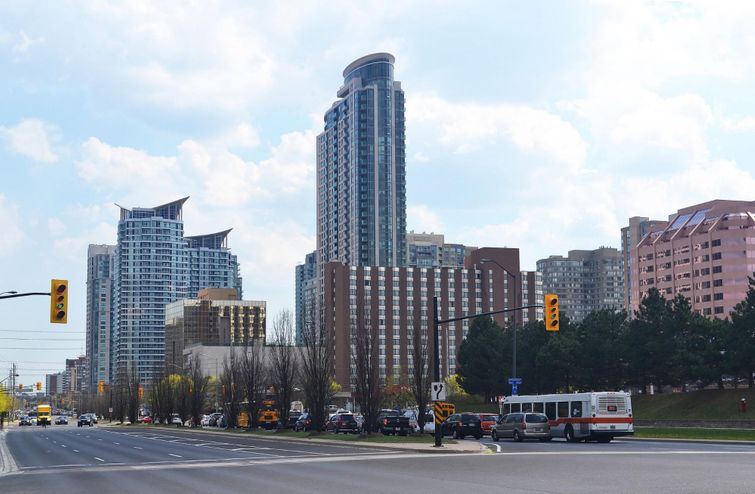
Across the region, there is an incredible variety of homes and neighbourhoods and there truly is something for everyone. Where the GTA stands out from Toronto itself is the fact that it has a bit more space and can be less tightly developed, providing you with more space to breathe. Prices in the GTA are also lower on average than in Toronto, though a few standout areas like Oakville and Richmond Hill can actually have higher prices.
Working with a real estate agent
If you have found some areas you like or feel like you need a second opinion, a real estate agent should be the person you look to. A real estate agent can provide a world of knowledge about the city, its neighbourhoods, and the homes within. A real estate agent will be your number one point of contact in the home buying process so be sure to choose one that you feel good about and who understands your needs and wants. For an even better process, look for a realtor who has experience in the specific areas you want to buy in. The right real estate agent can make all the difference and there are many out there, so don’t feel the need to stick with the wrong one. Typically, people interview 5-10 agents before settling on the right one for them.
Once you are connected with a realtor, they will now start sending you listings to choose from and you can begin house hunting in earnest.
Closing the deal
It can be challenging to close a deal in the Toronto housing market because of tough competition for homes in the city. Be prepared to spend a bit more on your purchase price then what the home was originally listed at, and don’t get too attached to anyone home until you know it is yours. It may also be hard to attach conditions like a home inspection on the sale, as others may waive conditions to get the upper hand.
Working with your mortgage broker and real estate lawyer for the final steps
If you were successful in house hunting and found a home that is a fit for you and you have had your offer accepted, you now have just a bit of work left to do. At this point, it’s good to get in touch with a real estate lawyer who you will need to help close the deal. You will now work with your real estate lawyer and your mortgage broker to make sure everything is in place and all the paperwork and legal aspects of the sale are in order.
Closing costs
There are that will add up when it comes time to close on the purchase of your home. These can include legal fees, home inspections, home insurance and more. One particular closing fee to note is the land transfer tax that Toronto applies to all real estate purchases. This tax is paid in addition to a provincial land transfer tax.
Overall, expect your closing costs to be about 4%-7% of your home’s purchase price in the city of Toronto.
First-time buyers
For first time buyers in Toronto, you can save some money off of your municipal and provincial land transfer tax which can help you save thousands of dollars off your purchase price. There are also incentives such as the First-Time Home Buyer Incentive that allows qualifying home buyers to receive up to 10% of their home price for down payment to be repaid up to 25 years later.
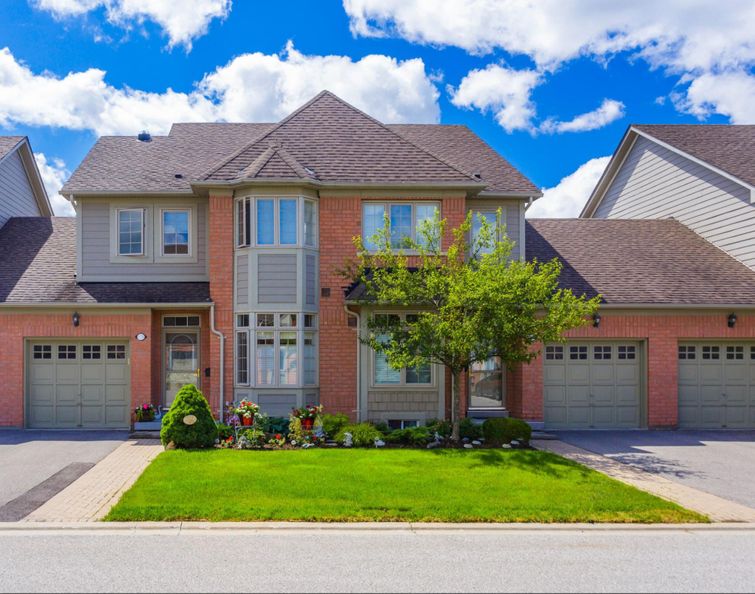
Foreigner buyers
Every year, many foreigners buy property in Toronto but there are a few things that make buying homes a bit more difficult for foreign buyers that you should be aware of. One is the non-resident speculation tax, which applies a 15% tax to any residential property bought in the Golden Horseshoe region by anyone who is not a Canadian citizen or permanent resident of Canada.
Congratulations!
If everything goes according to plan you will now be the proud owner of a home in Toronto. Besides a few recurring costs like property taxes and utilities, as well as your monthly mortgage payments, you now get to enjoy the home you worked so hard for, and enjoy the city for all it has to offer.
Corben joined CREW as a relative newcomer to the field of real estate and has since immersed himself and learned from the experts about everything there is to know on the topic. As a writer with CREW, Corben produces informative guides that answer the questions you need to know and reports on real estate and investment news developments across Canada. Corben lives in Guelph, Ontario with his partner and their two cats. Outside of work, he loves to cook, play music, and work on all kinds of creative projects. You can contact Corben at corben@crewmedia.ca or find him on Linkedin at https://www.linkedin.com/in/corbengrant/.


